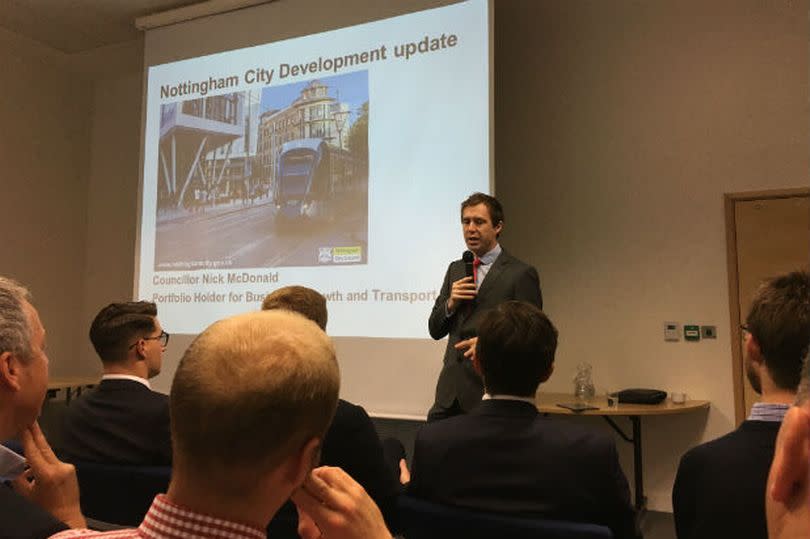The plan for eight Nottingham tram lines that would give city a 'world-class system'

Cast your minds back eight years to 2016. Forest were enduring their ninth consecutive season in the Championship, Justin Bieber was taking over the music world, and Nottingham was talking about phase three of the tram network.
Since then a lot has happened. Covid, obviously, had a bit of an impact and the country's worsening finances put the brakes on massive infrastructure projects unless you want to build half a high-speed railway line.
That meant talk about extending Nottingham's tram network has been just that, talk, until the advent of the East Midlands Mayoral Elections and the massive amounts of cash that somehow comes with that. The tram is often brought up as a way of improving the public transport network across Nottinghamshire and potentially Derbyshire.
Read more: Government says it's 'perfectly reasonable' for Nottingham tram bosses to ask for more help
In 2016 Councillor Nick McDonald, who stood down in 2019, three years after making these comments, had big ideas. He wanted an additional five tram lines to be built in the area.
The portfolio holder for business, growth and transport, said he wanted the city to replicate other cities' transport systems, which have seven or eight lines, instead of two. He believed a "grand vision" of a less congested and cleaner city is needed if funding is to be secured to expand the tram network further.
His comments were made to more than 70 members of Nottingham Professional Services at Loxley House as part of a wide-ranging discussion about the latest city developments.
He said: "We need the tram to go out to Gedling, Kimberley and Eastwood. We absolutely have to extend it to the proposed HS2 station at Toton and some of the ideas about it going to Derby are really interesting.
"A world-class tram system will have seven or eight lines at least not just three. It would be completely wrong for us to stop it's not our intention. Some of the very big Far East investors are very interested in tram infrastructure to position themselves to bid for big contracts like HS2."
"If that does turn into a serious conversation, we should make sure we're front of the queue for those sorts of things. We have to be bigger in our ambition to maximise the chances of future extensions happening.
If we try to get bits of funding for minor extensions over the next 20 years we will never get viability. It's all about where it goes and the residential communities it goes through, as well as connecting to major roads it's not easy to make a tram system viable. The only way you do it is by scaling it up.
"It will probably take a few years but we could be bidding for and failing to get funding for minor extensions because they aren't part of a grand vision for a less congested city with better air quality," he said.
During the same meeting Steve Wooler, chief executive of civil engineering firm BWB Consulting, praised the council for its "vision and commitment" in improving public transport despite resistance from businesses over the workplace parking levy, which was used to fund the tram extension to Toton Lane and Clifton.
"It would be a travesty if there wasn't any further investment to extend the line that really positions Nottingham as a European city," he said during a question and answer session.

 Yahoo News
Yahoo News 
